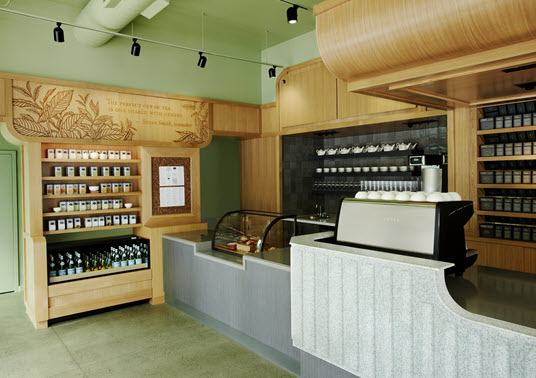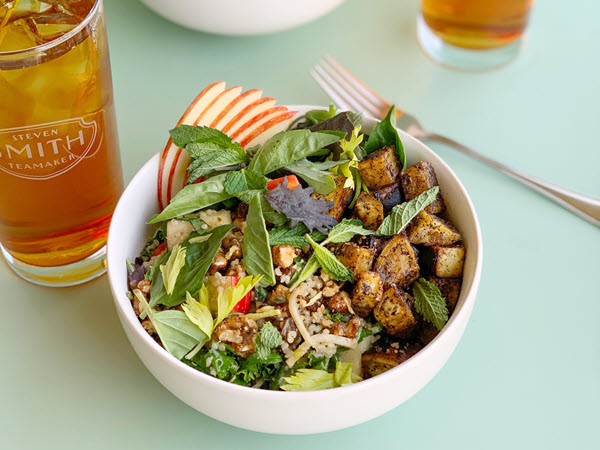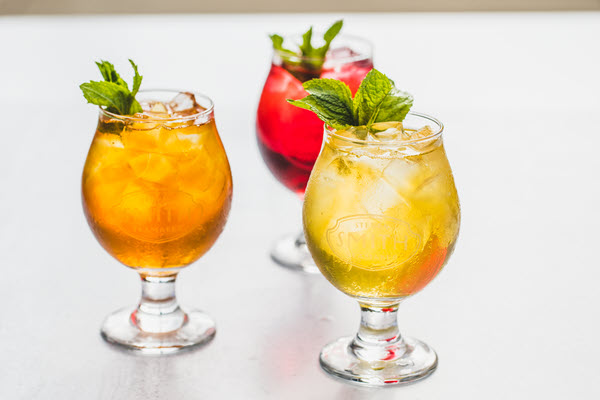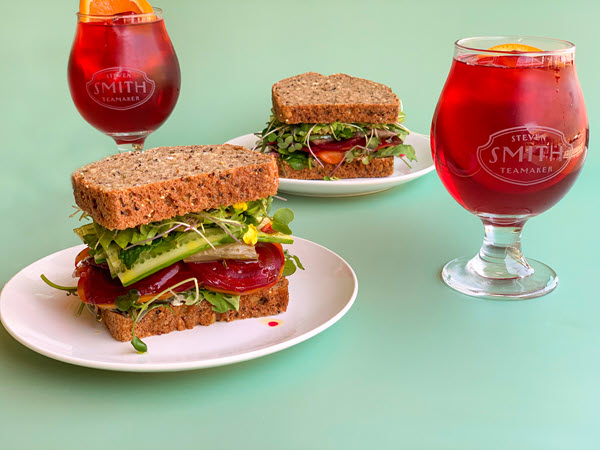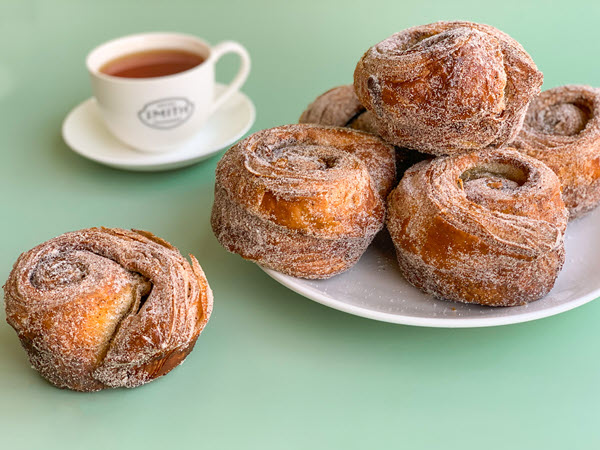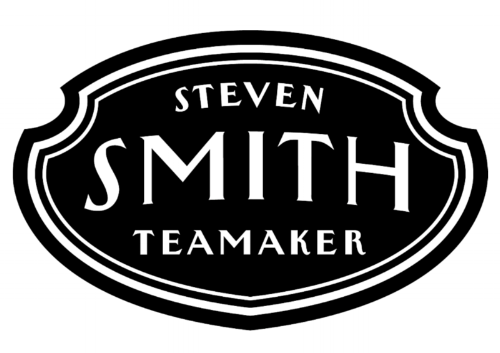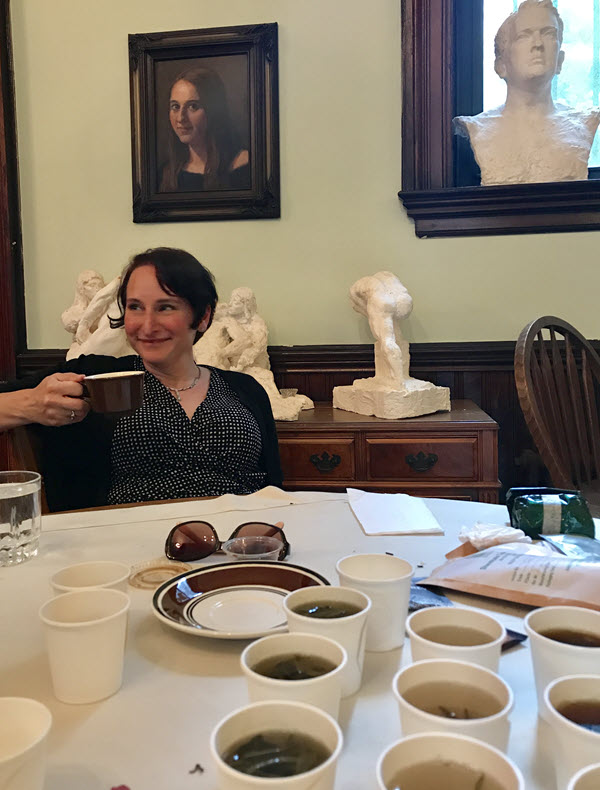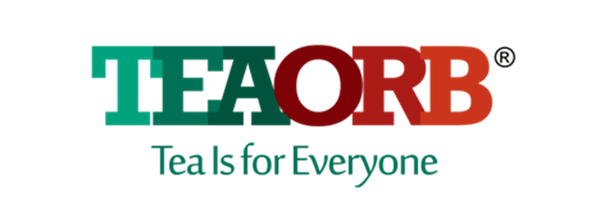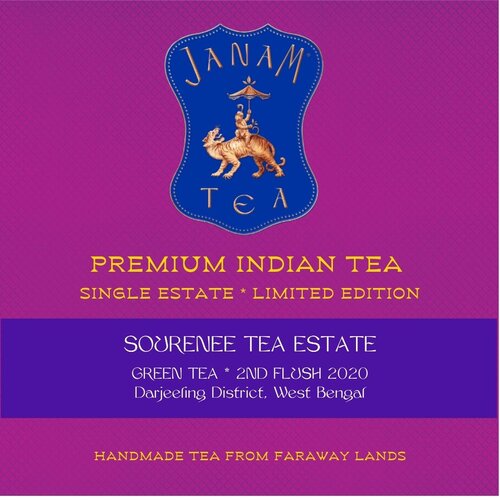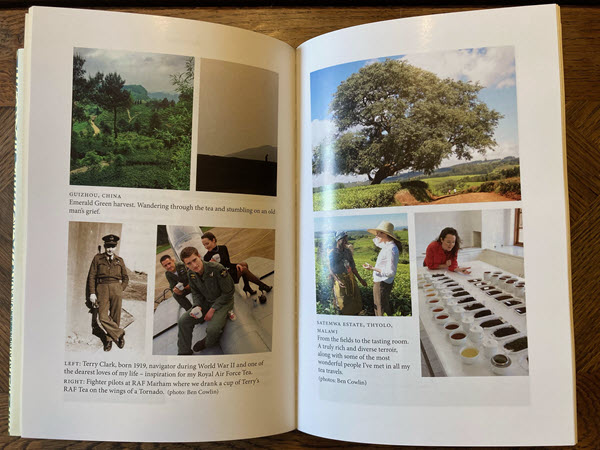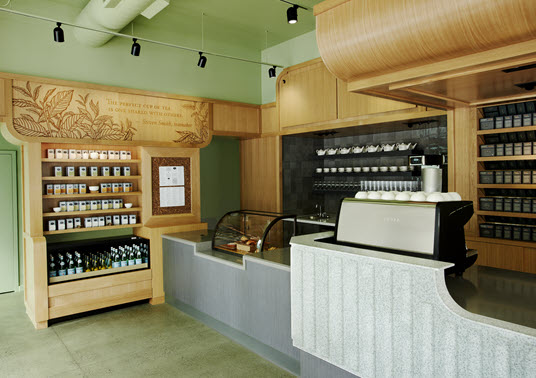Our guest this week is Maria Uspenski, a cancer survivor, and author of Cancer Hates Tea. In 2004 Maria founded The Tea Spot, a tea wholesaler and teaware design company in Boulder, Colo. Join Herbal Collective Magazine publisher Marilyn Zink, as she discusses with Maria the importance to overall health of herbal adaptogens and their role in blends with tea, itself an adaptogen.
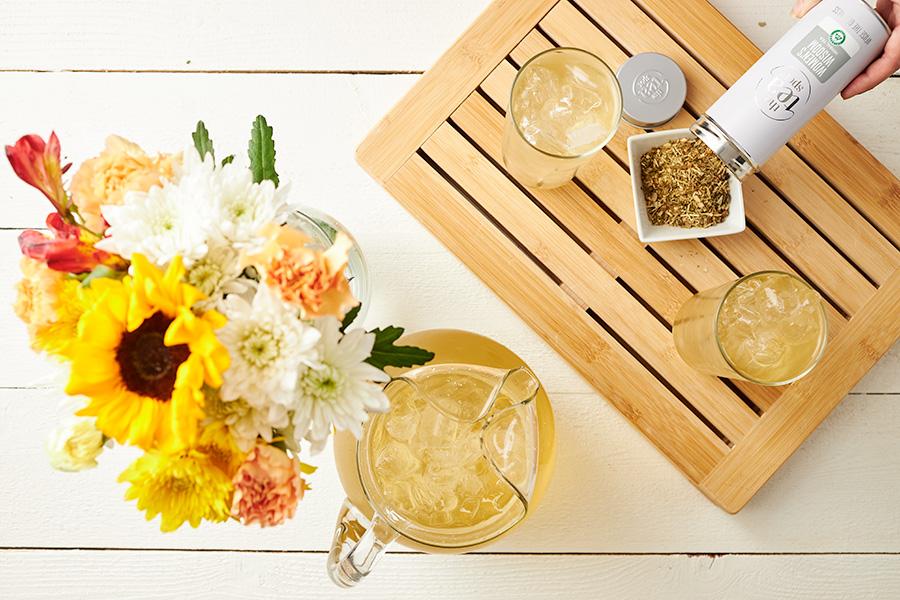
The Beneficial Role of Adaptogens and Tea
By Marilyn Zink | Herbal Collective Magazine
The Tea Spot is a Public Benefit Corporation and Certified B Corp that donates 10% of all profits in-kind to cancer survivor and community wellness programs. To date the company has donated more than 10 million cups of tea through its 10% For Wellness pledge.
Marilyn: Maria, will you tell us how herbal adaptogens got started and why?
Maria Uspenski: Adaptogens were classified in 1950s by a Soviet scientist who was looking at ways to reduce stress for combat pilots that came from being in rapid fire combat, but also because of being at such high altitude and dealing with such intense sunlight.
And I thought, wow, that’s super useful and something that could be good for me, and I started reading very intensely about this and then, when the pandemic hit, “I’m like wow, this is it. We really need to nurture people with something that can be supportive.”
Our Adaptogenic Chai came out with literally 12 different strong adaptogens, and so these adaptogens have the ability to bring balance to your body, regardless of which direction the stressor is coming from.
So let’s go back to that combat pilot for a moment, so he may have an incoming threat for which he needs his energy level to go up for where his system is responding from a low point. He needs to be brought up. The adaptogen will give him that boost, or say he’s just been shot at and is a little frazzled and needs to back down. The Adaptogen can bring him down, so that’s referred to as a nonspecific response.
That’s the first requirement for being an adaptogen. The response needs to be nonspecific, and that means it can either bring you up when needed. It can give you the lift when needed, or as we say, it can give you a gentle kiss on the forehead.
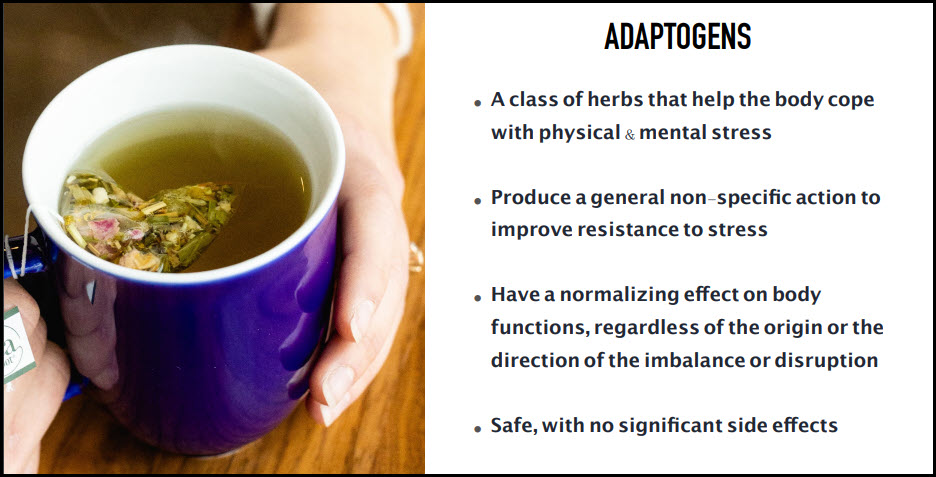
The next requirement for an adaptogen is that it needs to be a natural substance, so a plant. So generally, we use herbs, flowers of herbs or roots or mushrooms in our adaptogenic blends.
And the third thing is that it needs to be otherwise non-harmful, not affecting other physiological biochemical processes in your body.
So those are the three requirements.
Camellia sinensis is a secondary adaptogen. Secondary adaptogens are adaptogens which will support the effect of other adaptogens in your body. It has a very magical amino acid called L theanine and that is very good at balancing mood.
So, it’s not a primary adaptogen in that it will give you that big boost or bring you down when needed, but it offers kind of a supportive aspect of that.
Things like ashwaganda, chaga mushroom, reishi mushrooms, dandelion root, and Rhodiola which is actually my favorite adaptogen, those are all very strong primary adaptogens.
We just launched the Goddess Collection, a line of three teas to support women in different stages of their lives.
Venus Rising is one for women when they’re going through their PMS, part of their menstruation cycle, and the adaptogens in that tea and interestingly licorice, which is a strong adaptogen, fennel and St. John’s Wort. There are other herbs to help with cramping and digestive relief, but those are the three primary adaptogens in that tea that help with mood and centering and balance.
The second tea is for new moms, for lactation, and it’s called Mamahood. The primary adaptogens in that tea are fenugreek seeds and oatstraw with blessed thistle, and alfalfa blended with non-caffeinated red rooibos.
The final tea, I am most excited about, is a lemongrass blend. Lemongrass is not an adaptogen, but the strong herbal adaptogens in that tea are black cohosh root, which Americans have used for women going through the menopause phase of life for many hundreds of years.
Dong Quai, which is also known as Angelica sinensis, is a traditional Chinese medicine for the symptoms of menopause. Most of these are for hot flashes and vaginal dryness. So literally, you know they have fetal-estrogenic qualities, so these are not teas that women should be drinking when they’re pregnant.

Marilyn: When you say that people who are looking for tea now, they’re not thinking tea is just something to drink?
Maria: There are people that just look to tea to get them warm and have a delicious beverage, but statistically speaking, in North America 76% of herbal tea purchases are for whatever function that herb can bring people.?
Marilyn: Is there a certain amount that someone needs to drink or certain frequency?
Maria: That’s a very valid question, too much of any good thing is not a good thing, right?
Adaptogens are classified as not having a negative effect on other functions. It’s using it daily for a certain amount of time.
We don’t instruct people to make decoctions, to cook these teas on the stove, but honestly, you’re better off cooking it because you are talking about roots, cloves. You want to hit herbs with boiling water or as hot as you can get it in whatever environment you’re living in. And if you have the time and you have the tea loose, cook it on the stove.
I like to take our adaptogenic Chai loose and cook it on the stove for 10 to 20 minutes. I like to cook it and then those roots and herbs just keep on giving.
In my mind it brings me back to center. In reality, it probably does that only because I drink it daily or every other day.
Marilyn: You talk about adaptogenic herbs for women, what about for men?
Maria: My species obviously needs to reproduce, but I don’t need to reproduce today, tomorrow, yesterday, in order to make it to next week. Those hormones that I need, you know, pituitary, thyroid, those hormonal functions that are most important are not for women only.
Digestion is one of the symptoms that comes out of hormonal digestive problems. A large part of what we help with is called belly pain and digestive issues as well, which of course concern men almost as often as they do women.
Digestive health is just as important for both genders. In our Adaptogenic Chai, organic maca root and Slippery Elm are two of our favorite ingredients. Slippery Elm is amazing for digestion.
Adaptogens that target reproductive hormonal function have also been shown to be effective for prostate health as men age.
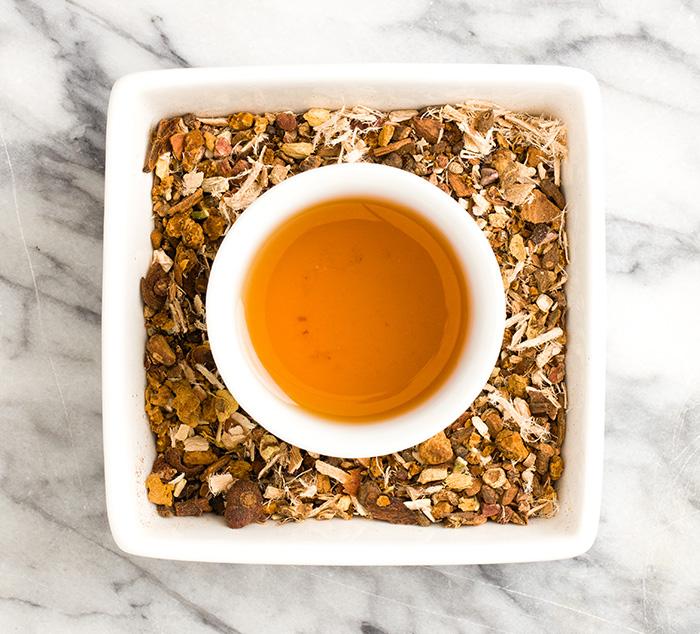
Marilyn: Isn’t it wonderful when you think something as simple as tea can be so healing for people.
Maria: It’s fantastic. The biggest impact is when a customer will reach out and say, ” ‘you know, your teas and drinking them regularly has really changed my life.’ ”

Empowering Wellness
Loose leaf tea became an integral part of my recovery from cancer and continues to be a key component of my daily health regimen. The simple act of preparing loose tea is likely just as therapeutic as the tea itself. It gives me great joy to be able to share this with others and I am continually inspired by the people who courageously and actively fight to survive.
The Tea Spot is committed to spreading health and wellness through whole leaf tea — every day. The company crafts teas of exceptional quality and designs innovative Steepware that empower people to lead healthier lives. Our customer community actively participates in this mission through our 10% For Wellness. As a “Best for the World” certified B Corp, our company is recognized for infusing the goodness of tea in communities near and far.
— Maria Uspenski, CEO & ovarian cancer survivor

Wellness partners include: National Race to End Women’s Cancer, Colorado Ovarian Cancer Alliance, Rocky Mountain Cancer Center, Living Journeys Cancer Support, Casting for Recovery, Ovarian Cancer Awareness of Kentucky, Junior League of Denver, A Woman’s Work, Cancer Climber Association, Tru Community Care, Thorne Nature Experience, and the National Breast Cancer Foundation.
Adaptogens
- Reishi Mushroom
- Ashwagandha
- Maca Root
- Ginseng
- Chaga Mushrooom
- Holy Basil (Tulsi)
Share this post with your colleagues.
Signup and receive Tea Biz weekly in your inbox.
Never Miss an Episode
Subscribe wherever you enjoy podcasts:


